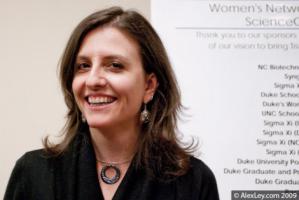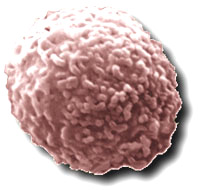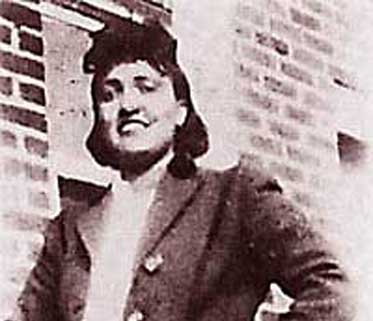Serendip is an independent site partnering with faculty at multiple colleges and universities around the world. Happy exploring!
Towards Day 22: Immortal Life/Immaculate Perception

smacholdt's course notes
-thumb-400xauto-7959.img_assist_custom.jpg) |
 |
I. coursekeeping
today's notetakers: smacholdt and pfischer
for Tuesday, read any 100 pp. from Carl Sagan's The Demon-Haunted World: Science as a Candle in the Dark (very diffuse, repetitive--but a real 'reality check' for non-fictional prose!)
read also (via veritatemdilexi's first hyperlink!!) a June 2010 report on how Johns Hopkins now deals with tissue culture and navigates patient confidentiality while pursuing medical research: Immortal Cells, Enduring Issues
Part III: (@ least two types of?) Immortality
 |
A range of possible organizing questions for today's discussion:
1) How you should feel about this isn't obvious (316-17)
removed tissues=waste (205)
factually incorrect: HeLa cells related to Henrietta/DNA no longer genetically identical (216)
consent issue overshadowed by a public responsibility to science: "morally obligated to allow bits and pieces to be used to advance knowledge to help others" (320-1)
does the book nudge your thinking in a particular direction?
FatCatRex: I get the chills thinking of this connection; I am of course incredibly grateful that HeLa cells led to the development of a cancer drug that saved my mother’s life, yet I feel a little squirm-y now that the direct link between my mother and the exploitation of the Lacks family has been made explicit for me in black and white .... I think it behooves us all to think more about the ways we are connected to the Lacks family. I think my interest in the involvement of the family to tell the narrative of an individual (what I mentioned in class Tuesday) stems from my ultimate discomfort at the realization that this family, who is not unique in their struggles and challenges, is related to ME and tells complicated part of my story.
2) does it take a particular stand in our ongoing
debate about fact <-> fiction?
notes clearly labeling what was fiction and what wasn't (252)
This book was intensively fact-checked (332)
[and yet]
If you believe the Bible is the literal truth, the immortality of Henrietta's cells makes perfect sense (296)
3) does it clarify in any way our understanding of the genre of non-fiction?
EVD: I'm amazed at how Skloot seems to come at this story from every possible angle (historical, medical, cultural) and from the perspective of her own journey, Henrietta's and Henrietta's family's ... this book is an ideal combination of different types of literature ... that inability to categorize this book makes it even more interesting to me.
[but what does it do to the organizing idea of this course??]
4) might we look @ the way it operates as the particular sub-genre that is popular science writing (as a warm-up for Carl Sagan...)?
Brown Bag Discussion on Science's Audiences:
a "scientific fact" moves from the laboratory into the social world through multiple levels of filtration, discussion, conversation, translation, and adaptation to accessible language. Science legitimized itself by becoming a public activity --a process of negotiation in which the acquisition of "virtual audiences" was essential. In this process of virtual witnessing, "not in front of the air pump," (for example) Boyle had to use descriptions to convince his audiences of what he had done. But those audiences were actors with their own agendas, interpretations and reactions; a feedback process was thereby initiated, and the explanations changed in reaction to audience response.
Maria Freddi, "A linguistic mapping of science popularisation" (cf'ing Feynman's lectures)
a cline from the teaching of specialised knowledge to its dissemination to a wider audience
key factors: register hybridity and genre situatedness (the scientist engages his audience through narrativisation, visualisation, and an overarching interactional strategy = dialogicity)
BUT ultimately, despite all efforts one might make to reform the language of science, one has to accept that “God seems to be a mathematician” and nature speaks the language of mathematics: "It is reputed – I do not know if it is true – that when one of the kings was trying to learn geometry from Euclid he complained that it was difficult. And Euclid said, 'There is no royal road to geometry'. And there is no royal road. Physicists cannot make a conversion to any other language. If you want to learn about nature, to appreciate nature, it is necessary to understand the language that she speaks in. She offers her information only in one form; we are not so unhumble as to demand that she change before we pay any attention" (Feynman).
or: how translatable are science's understandings?
Notes from Tuesday night's Tri-Co
Working Group on Science Studies
(do other profs tell you about their extra-classroom intellectual experiences? conferences they went to, discussions they have w/ colleagues, etc??)
"constrained storytelling"
(in both science and the humanities)
"goal of science is not to describe the world as it is, but to make a new world" (working scientists would agree--that they use new data to reveal something new--but lay people wouldn't)
"what are you annoyed at?" (people being left out of a project that affects them--it's about democracy)
increasing insistence on co-constructed character of science: process of communal story construction
field of science education dominated by questions re: effectiveness of transmission of understanding, not re: development of attitudes, or critique of the culture
sociologist: "there is no immaculate perception: all understanding comes to us via systems of meaning"--either through explicit ideologies, or (more powerfully) through tacit, taken-for-granted, authoritative, naturalized, unquestioned paradigms = hegemonies
cf. Walker Percy's "Loss of the Creature": a student may have the greatest difficulty in salvaging the creature itself from the educational package in which it is presented ... [there is a need] to reassert the sovereignty of the knower over the known ... instead of being a consumer of a prepared experience, to become a sovereign wayfarer ... I wish to propose the following educational technique ... English poetry and biology should be taught as usual, but at irregular intervals, poetry students should find dogfishes on their desks and biology students should find Shakespeare sonnets on their dissecting boards ...
Do you believe in immaculate perception? Or in the usefulness of disciplinary (generic?) framings? What difference does it make that you are reading this text in THIS course? How would you read it differently, in a different context? Is all knowledge context-dependent?
Reading Notes, continued
180: Hopkins had part of Henrietta alive and scientists everywhere were doing research on her..."part of her was still alive"
184: time of great flux in research oversight..filled with "widespread confusion about how to assess risk," as well as "refusal to cooperate" and "indifference"
187: What constituted "injury" and "risk" was heavily debated
188: if the parts of her mother they were using in research could actually feel the things scientists were doing to them
189: "we never thought at that time they did not understand"
201: "I was the cell line, like a piece of meat"
Nothing biological was considered patentable until ... 1980
203: Essential Biologicals... many have since turned their bodies into businesses ....the first person to legally stake a claim to his own tissue and sue for profits and damages
![]()
If tissue samples became patients' property, researchers taking them without getting consent and property rights up front would risk being charged with theft.
205: the definitive statement on this issue: When tissues are removed from your body...any claim you might have had to owning them vanishes...you abandon them as waste, and anyone can take your garbage and sell it..."transformed" into an invention...the product of "human ingenuity" and "inventive effort"
211: "I just thought [the family] might make some interesting color for the scientific story."
213: Henrietta's family have their own theories... the Lord's way of punishing Henrietta for leaving home...all disease was the wrath of the Lord
215: HeLa was no longer human. Cells change while growing in culture... become a separate species.
216: it's factually incorrect to say that HeLa cells are related to Henrietta, since their DNA is no longer genetically identical to hers .... "it's much easier to do science when you disassociate your materials from the people they come from."
216-7: normal human cells... can't grow indefinitely... they divide only a finite number of times.... Only cells that had been transformed by a virus or a genetic mutation had the potential to become immortal.
224: many questions and moral and ethical issues surround the "birth" of HeLa, and the "death" of Mrs. Lacks.... questions of whether or not permission was received from the "donor"...for the "use" of HeLa
237: the line between sci-fi and reality had blurred years earlier
247: "I think them cells is why I'm so mean .... I had to start fightin before I was even a person ...I kept them cancer cells from growin all over me while i was inside"
252: With each packet, I sent notes...clearly labeling what was fiction and what wasn't
262: "Her cells caused millions of collars in damage. Seems like a bit of poetic justice"..." my mother was just getting back at scientists for keepin all them secrets...."
265: "HeLa is all just cancer"
295: "Those cells are Henrietta."
296: If you believe the Bible is the literal truth, the immortality of Henrietta's cells makes perfect sense.
298: "maybe if I understood some science, then the story about my mother and sister wouldn't scare me so much"
308: "She's in a better place now...now she's happy."
Afterword
316-7: How you should feel about this isn't obvious. They're using issue scraps you parted with voluntarily. Still, that often involves someone taking part of you. And people often have a strong sense of ownership when it comes to their bodies .... but a feeling of ownership doesn't hold up in court. When they're part of your body, they're clearly yours. Once they're excised, your rights get murky.
318: tissue-rights activists
320: "conscientious objectors in the DNA draft"
320-1: the consent issue is overshadowed by a public responsibility to science: "I think people are morally obligated to allow their bits and pieces to be used to advance knowledge to help others."
321: "Science is not the highest value ... autonomy and personal freedom"
322: most individual cell lines and tissue samples aren't worth anything on their own. Their value for science comes from being part of a larger collection.
325: "It's interfered with science... it's changed the spirit." Now there are patents and proprietary information where there once was free information flow.
327: "the fundamental problem here... is the notion that the people these tissues come from don't matter."
Acknowledgements
330: re-creating the life of Henrietta Lacks
332: This book was intensively fact-checked.
333: the importance of communicating science to the general public
336: every good novel... with a disjointed structure... I devoured while trying to figure out the structure of this book

smacholdt's course notes


